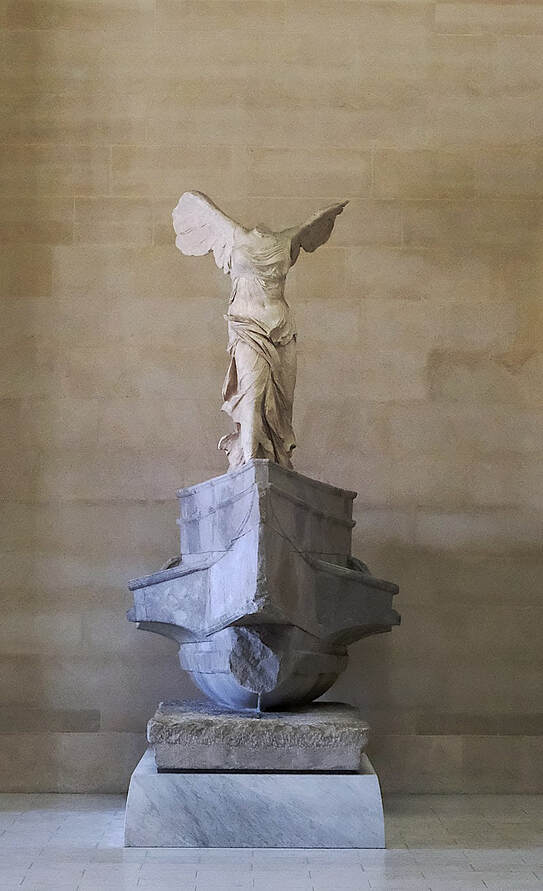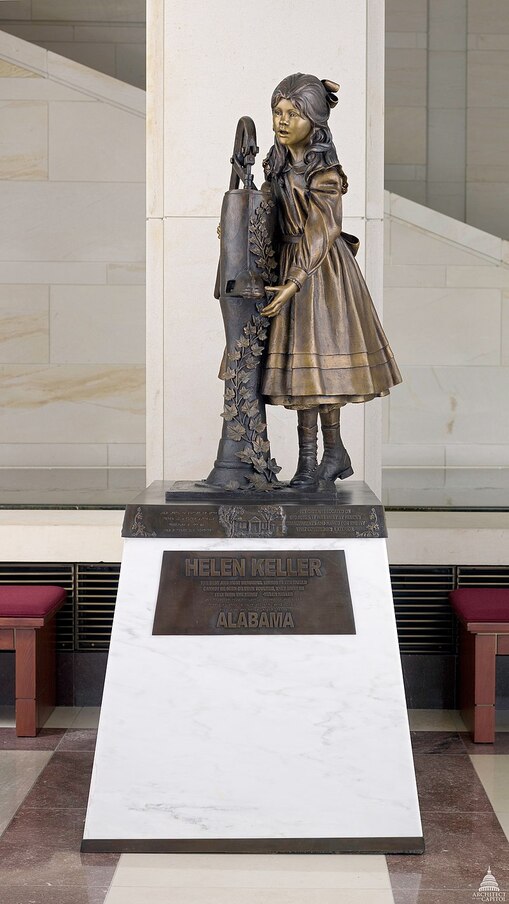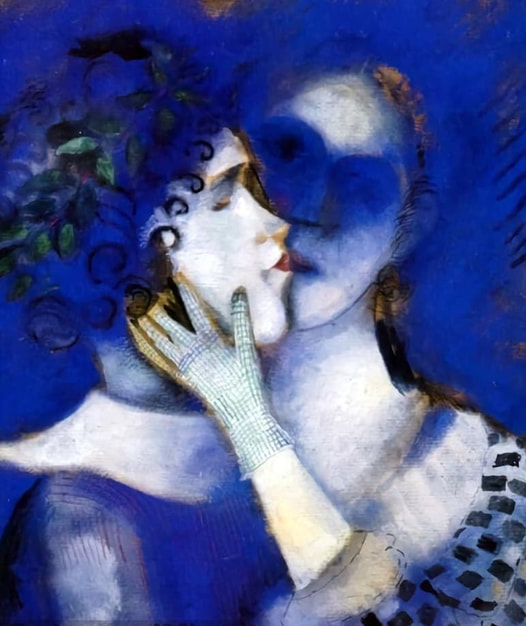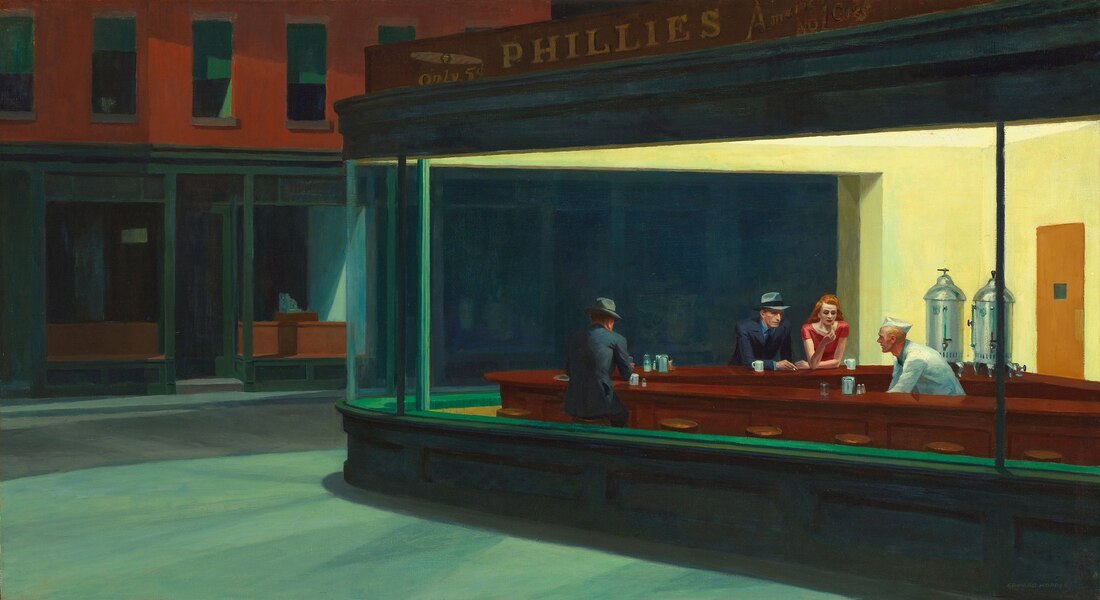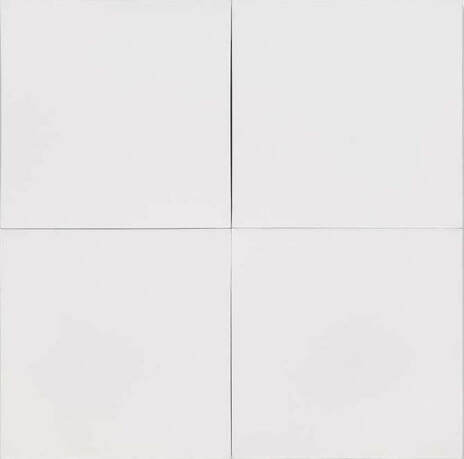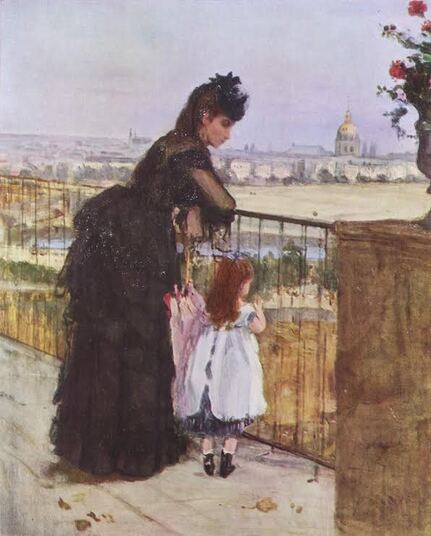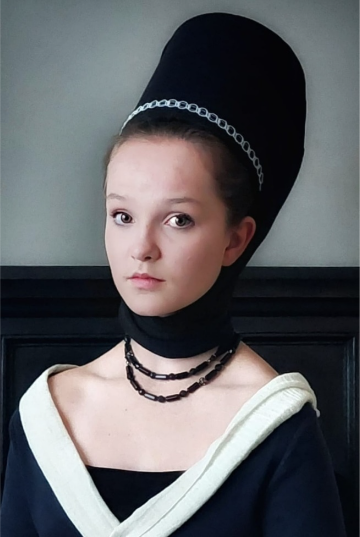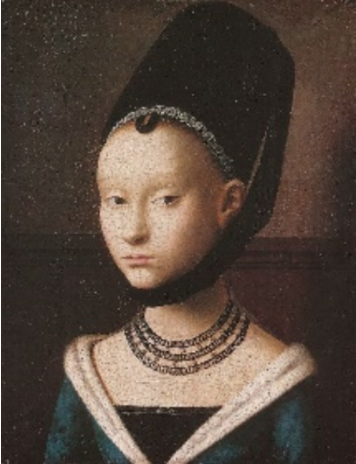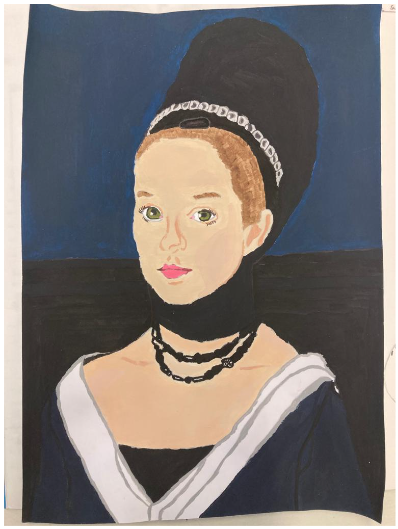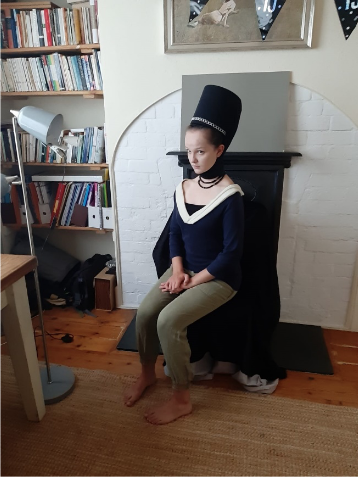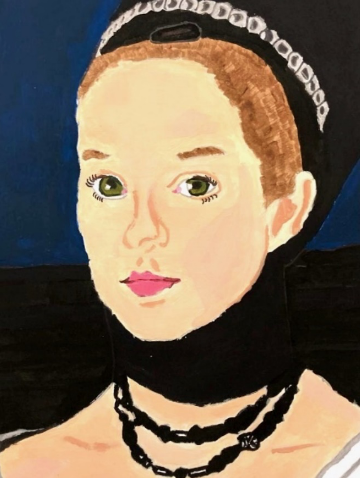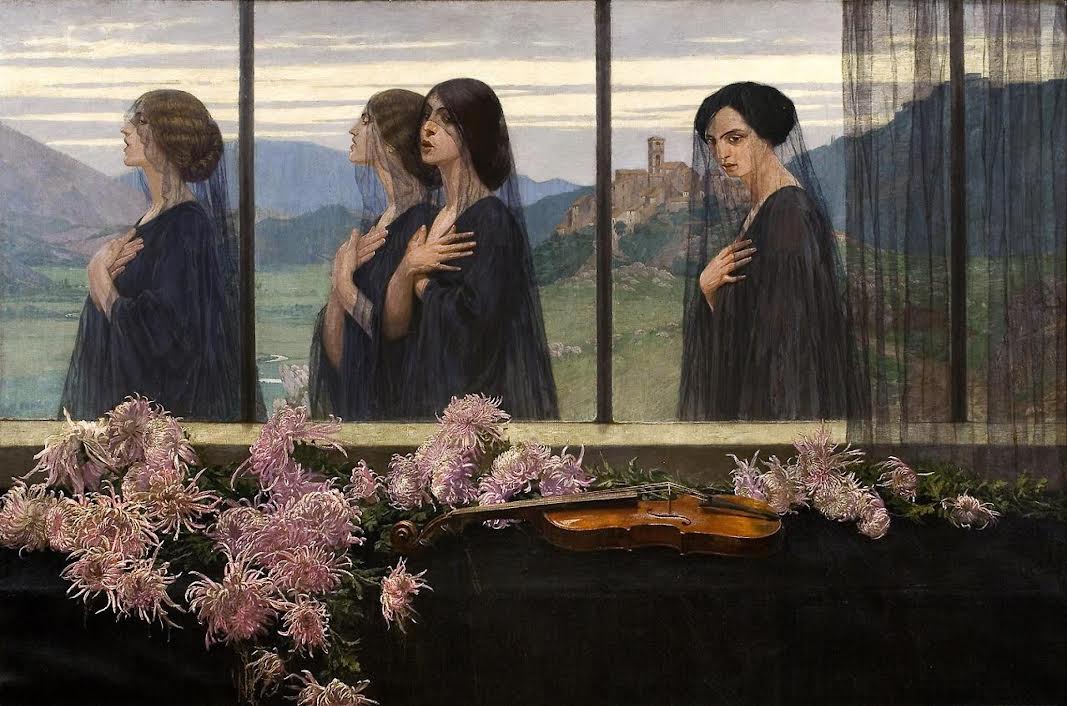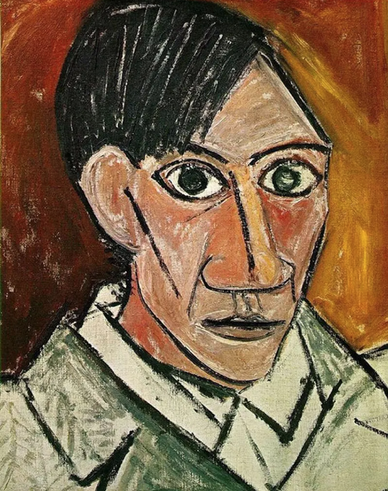|
The Goddess of Plastic Figures Headless and armless, a goddess alights on my shelf, enshrined in all the glory twelve inches of plastic allows. Dinoflagellates stitched starlight into carbon long before Nike, Winged Victory of Samothrace, landed on the prow of a trihemiolia, proclaiming ancient triumph, long before her statue was smashed, her glory forgotten, before the bits were carted away, rebuilt in the Louvre, hidden from Nazis, given the Daru Staircase, before we learned to change star-carbon into petroleum and yearly cast her into 49 plastic statuettes, carted home in backpacks to adorn bookshelves and trophy cases. She means something else now—her stylized shadow on every swoosh-bearing jacket, hat, field, singlet, and shoe hides her with overexposure. We forget her. But not the plastic figures. They share her star-carbon and know the power in billowing, harrier-wide wings. PEZ dispensers, Funko Pops, Hasbro toys, LEGO minifigs, plastic dinosaurs, even a Kenner Nien Nunb with blaster, lining shelves on plinths in the Museum of Obsession, turn to her as shocked Grecian sailors, twitching alive like Small Soldiers so they can raise their laurels. To them, no other likeness of anything is higher than she. Sestina for the Caryatids There was no such thing as an empty plinth. We stood where we stood, each unique braid caressing our necks, supporting the weight of baskets, dates, and stone together, but you joked about dropping our burden. You alone. Despite the roof on our heads catching the rain. From our porch we watched the rain, stood beside the flowers’ concrete plinth, watched you run into it to dance, you alone, pointing your toes, flailing your braids, soaking in through your hair the weight of all that the sky could give you. But in your dancing, unbeknownst to you, time chipped like rain. We tumbled under the weight. Unbroken, returning to plinth you blinked at crumbled braids. If one of us could remain, it would be you alone. In the light of the early morning, you rose alone, scampered to stand, you turned on the lights, braided mystery with rain, cleaned our empty plinths, dusted dust, and waited. Is it heavy to wait on time? You alone could do it. You filled your plinth every day, found ways to bear the load better, you stood in the weather, let the rain unravel your braids until water was the only remaining braid. And under all that weight, you gave up on rain. You stood alone. And from our crumbled eyes, we watched you sigh, wave goodbye, and step off your plinth. When you used to leave your plinth to dance in the rain, we complained that you were the stress on our braids. But we did not help you carry our weight. That was you alone. Bronze Fingers, U.S. Capitol Building In the places where steps have smoothed and divots formed, molecules departing on shoes for centuries until stone steps become stone scoops, those are the same places where you will find me. In our abruptness and sudden abandonments, we forget that repetitive human action also digs into the world. We erode our surroundings-- sometimes even slower than water and wind. I want to tell the seeing children to stop; go ogle at Jeanette Rankin or Kamehameha, but stop taking these bits of copper and tin away on your hands. I see like they do; I want to touch it too. But millions have brushed the bronze message into oblivion for the fingertips that come to read. A Plan for Removing Residue the composition of tear gas is designed to disable; tear gas is a structural maintenance nightmare You should not be here like this, say the statues. A visitor cannot leave the simplest gift or offering (no cornmeal, no leis, no “I Voted” stickers), but as you run, you leave behind your flags and cans, your plastic bottles, cigarettes, and blood. no such thing as easy tear gas remediation A tired congressman brushes the marble, bronze, copper, brass, the tile floors, the solid walls and columns. A custodian tosses the hat left on Ford’s head, blows dust from the curls in Grant’s beard, bags the plastic debris. but remove and dispose of all porous materials: carpeting, padding, cloth furniture, draperies, materials into which tear gas can penetrate What to do with the plaster and canvas, the porous faces of Pocahontas, Tecumseh, forebears, thinkers, and inventors? Even War and Peace can crumble. Do grisaille and oil eyes sting with the bite and spice of gas? in most cases, porous materials cannot be cleaned completely Our permanent representatives—a king, pacifists, defenders, farmers, immigrants, guides, astronauts, poets, and even a cowboy artist—continue their work, lingering in figure and image, and they will not forget. They cannot—their eyes are ever tear-tracked. Gabriel Meek Gabriel Meek is a poet and teacher from Spokane, Washington, where he earned his MFA from Eastern Washington University. He is fond of movies, museums, and monsters.
1 Comment
Les Amoureux en Bleu Once this was us, young and in love, caught, not on canvas, but in a snapshot. I want to be that girl, cast in blue shadow, her lips on his, sharing that kiss. I want her inky corkscrews escaping in front of her ear. I want those gloves, checked like the grill of a store front. I want to be loved completely like that, no doubt or obfuscation. Marry me, this painting seems to be saying. Cover me in blue shadows, hues of cerulean. Night may be coming, a dramatic black curtain, but the rigid edges of the frame will not allow its intrusion. Instead, the world is blue, him and her, me and you. Barbara Crooker This poem was previously published in Live Encounters. Barbara Crooker is the award-winning author of numerous books of ekphrastic poetry, including Some Glad Morning, The Book of Kells, Gold, and Les Fauves. She has been nominated for the Pushcart Prize more than fifty times. Anonymous (When the Woman Who Asked Not) When the woman who asked not to appear in my poems said we had to talk, we met at the Nighthawks diner. I held the door before we entered and seated ourselves with our backs to the window. Just us and the short-order guy. She’d chosen a red dress that matched the one worn by the woman who usually sat in the corner beside the gentleman who swore he knew Robert Mitchum. At the last minute, I’d slipped on an Aloha shirt with blurred pies floating across a jungle scene. The short-order cook took our selections as soon as we were settled: A tenderloin with pickles and a slice of tomato, onion rings, and a ginger ale for me, her regular glass of ice water. “I was never sure about you,” she said. “And I want to stop wondering, what if. I mean I don’t know how to say goodbye.” She took a sip of water after making her point. Shook her head and soured her lips. Memorizing kiss-off lines from movies was her Trivial Pursuit calling card. I’d sat in this chair before, mumbled sure and yes and fine when the blank spaces in a hit-the-road afternoon popped up. The short order cook whistled “Heartbreak Hotel” over a coffee cup he was washing. She glanced at her watch, handed me a napkin to wipe away a crumb from my upper lip. Pointed to where I had missed it. Across the diner Robert Mitchum slid onto an empty seat and stared at us with his lazy eyes. He lit a Philip Morris and shooed the cook away with the cigarette. She nodded to the actor as she shouldered her purse. Said, “I’ve got a plane to catch. Either Key West or Shangri-La. First Class from now on. Trash the shirt.” As she made her exit, Mitchum signaled for my check. Michael Brockley Michael Brockley is a retired school psychologist who worked for 33 years in the schools of northeast Indiana. He lives in Muncie, Indiana where he is looking for a dog to adopt. Over the course of his 73 years, Brockley has companioned five German shepherds and a shih tzu. Since retiring, he has been submitting poems to small market and literary journals. His most recent poems have appeared in Shorts Magazine and Syncopation Literary Journal. Poems are forthcoming in Gargoyle. White White, the salient colour of night, the east and west of human eyes, the summits of ocean swells and bowling pins, the bases of waterfalls and baseball diamonds. White, the exclusive colour of Grecian summers, pensive, spectral, in rows of sculpture by the hundreds; the porcelain tinkling of chess pieces, the sewing of surrender flags. White, the crusted colour of mummies, insect and human, the produce of silkworms and of fear, the effect of quicklime in time of plague, the priestly smoke of censers. White, the obligatory colour of doves perched on clotheslines under black clouds in backyards by railroad tracks; the genuine simplicity of respectful observation, the acceptance, not worship, of irony. Douglas Richardson This poem was first published in the author's book, Sugar Fish (The Sacred Beverage Press 2007). Douglas Richardson lives in Santa Ana, California, with his wife Jen and cat Wes. In these work-from-home years he likes to watch Big Bang Theory reruns during his lunch hour. His poetry has been published in The American Journal of Poetry, Anti-Heroin Chic, Black Poppy Review, Cajun Mutt Press, Hobo Camp Review, The Nervous Breakdown, The New Verse News, Straight Forward Poetry, Trouvaille Review, and Poetry Super Highway. In 2013, he won the Poetry Super Highway contest with his entry, “Notes from the Graveyard Shift.” A Time to Rest Blue bears down on the black horizon as twilight arrives awakening an ant, a beetle and a walking stick. The sandy bank of the lake, cooling all night from the days harsh heat, offers a place to rest among the green reeds. A family at last finds respite after trekking across perilous terrain, the whites of their eyes disappear as the light rises. But can they rest, people fleeing, trying to break free from anvils strapped to their ankles? Even she, with resilient legs, brawny feet, calloused toes, toes that hold the silhouette of a mother cradling a baby, half lays in the golden dunes, eyes to the sky, rests her fingers around the neck of the rifle. Tina M. MWP This poem was inspired by the painting Daybreak: a Time to Rest, by Jacob Lawrence (USA) 1967. Click here to view it. Tina M. MWP (she/her) is committed to serving others through her professional life as an engineer and innovator in public health, and in her personal life, as a volunteer and tutor, and now, as a writer. She writes creative nonfiction and poems about belonging, identity, the power of language, and nature. She lives with her family in Rockville, MD. Haunted By Dreams Afternoons I wandered on the Trocadéro, all of Paris laid at my feet, glittering with promise. Julie clutched my hand, peering through railings at what might be. Sacré Coeur gleamed tall, inviting, rising up, taunting me, whose heart yearned for those city streets, those open boulevards, the spaces where my fellow artists roamed, free to taste, to touch, to recreate the vision, the music of those far off places, forbidden haunts in crowded backstreets, theatres, unspeakable venues where life teemed, tantalising, like fishes, weaving, darting in a never-ending flow of wriggling, restless exuberance. Never to be my own. Two years after my death, the Ecole des Beaux Arts opened its doors at last, welcomed my sisters in as fellow artists, to those hallowed halls where men spent their days in holy passion that would grip them all their lives. Give him his due: my father encouraged me, brought me tutors of the finest quality money could buy. But still I was excluded, barred from my profession, though I hung around the men, Edouard, Eugène, Edgar, Pierre, painting and being painted; painting myself, brush and palette in hand, a proper workman. I was proud. I painted verandahs, railings, cages, painted Julie: writing, reading, self-absorbed, gazing through windows, lost in her thoughts. Leaning on that cool iron railing, I shared my heart, dreamed my dreams. Warmed by the sun, we spied freedom, Julie and I, through the bars of our cage, glimpsed her future on the misty horizon. Julia Duke Julia Duke loves to experiment, with poetry and with creative non-fiction: personal essays, ekphrasis, nature writing and a recent hybrid project on identity. Currently living in Suffolk, U.K., after fifteen years in the Netherlands and six on the beautiful west coast of Wales, she has found her inspiration in landscape and her fellow humans, from diverse artworks and quirky ideas. Her poems and articles are published in various anthologies and magazines. Conversations, her first poetry pamphlet, is published by Dempsey & Windle (2021). A Defence of Imitation Most of the things in this photograph are not what they seem. The headdress is made from a lampshade. The material that covers it is the fabric of a T-shirt. The strap beneath the sitter’s chin is actually the sleeves that have been wound around the neck. The backdrop is a sheet of grey cardboard. The “ermine” of the dress is a rolled-up muslin (it’s not pinned; it’s simply balancing, and, if the girl moved, it would fall to her lap). The photograph is a kind of fake. It’s a copy of a Renaissance classic. And it’s the product of a practice called imitatio which I think can be both enjoyable and artistically instructive. ● I took the photograph in September last year to help my daughter with a school project. Her art teacher had given her a picture called Portrait of a Young Girl by the Early Netherlandish artist, Petrus Christus. She’d been asked to create a similar image in which she was the subject. We didn’t have long to do this (the homework was announced on Sunday and it was due in later that week) but the assignment sounded like fun, so we decided to give it a try. ● One of the first things we noticed about Christus’ painting was the light. Radiance descends from the top left-hand corner of the frame. It brightens the skin of the girl’s face and chest and contrasts her paleness with the drabness of her surroundings. It was morning when we undertook our task, so we needed a “studio” with an east-facing window. The front room was an obvious choice and we saw that the fireplace could double as wainscotting. The white walls could be “solemnised” with cardboard and a chair blackened with a Halloween cape. Whilst I busied myself setting the stage, my daughter went upstairs and completed her make-up. The outfit was devised. The headress was pinned. I got out my smartphone. It was time for the shoot. It was then that we noticed something else. Anyone who attempts (as we did) to re-enact this painting will quickly identify a mis-match between the position of the subject’s body and face and the direction of her gaze. Her body points one way, whilst her eyes look another. It’s this, we realised, that gives the image its dynamism. The girl is in the act of noticing. She performs what modern neuroscientists call a saccade. A salient detail (a face perhaps?) has come to her attention and her eyes react to more carefully inspect it. This is a pose that is easy to emulate, but it isn’t one that’s easy to hold (try it – just look to one side, but try not to move your head). It was fine for an instant photograph but it must have been galling for a portrait in oils. So is this, we wondered, why the girl in the painting looks so sad? Is she tired of all that saccading? Or is it something else? What is it that she so resents? Her look is wise, precocious, and, of course, perfectly ostensibly obedient. But it’s also sullen, disheartened, disappointed. “Imagine you’re grounded and it’s the middle of summer,” I said. “Your friends are at the beach, but you’re stuck indoors!” It was an attempt to get my daughter into character, to help her to feel the girl’s latent despair. When I saw my daughter’s painting I was delighted. I love the details. The lineations of her scraped-back hairline; the modulation of light and darkness on her face; the deep circumferences that circle her irises; the shadows of her clavicles; the lights in her eyes. I believe that great masters can help us to see more clearly and that, in this way, they can teach us lessons (even from the grave). ● More than 500 years ago, Petrus Christus gave the world a gift (as all artists do) and it was wonderful to receive it with my daughter in 2022. By setting ourselves the simple task of imitating an image, we discovered new ways of being inventive, practised our skills of observation, speculated about the significance of body-language and facial expression, connected with a girl from another age, and experienced our own artistic growth. Much of the time, as artists, we’re involved in acts of original creation. But I think it’s important for us to remember that acts of imitation can yield great results too. Dave Alcock Dave Alcock writes poetry and flash fiction. His work has been published by STORGY Magazine, Every Day Fiction, Flash Frontier, MacQueen’s Quinterly, The Cabinet of Heed, The Journal of Radical Wonder and The Dribble Drabble Review. It can also be found in two anthologies published by Ad Hoc Fiction and has been reprinted in The Miramichi Reader. One of his stories was nominated for Best Microfiction 2023. The Four Strings of a Violin Four somberly sing, but one won’t allow her song to be heard. Notes waver, then fall like the wilting petals of the pink Chrysanthemums that cover his casket. Anton Pooles Anton Pooles was born in Novosibirsk, Siberia and now lives and writes in Toronto, Ontario. His work has appeared in an array of journals and magazines. He is the author of the chapbook Monster 36 (Anstruther Press, 2018) and the full-length collection Ghost Walk (Mansfield Press, 2022). On Viewing a Self-Portrait by Picasso I pause at your self-portrait, transfixed by the black luminosity of your eyes-- and recall that you once asserted in the hubris of your prodigious vision, “I do not seek, I find.” Indeed, your eyes reflect, not the anguish of a mystic’s longing, but the child’s unblinking fascination with a world already there. You find these visibles and consider them eternally, so it is always your eyes we see-- from those of Avignon’s demoiselles, who compel us to find the ferocity of beauty to those of Guernica’s martyrs, who cast sight out and away from the horror of our time. They, too, are self-portraits, yet you remain to us strangely mute; as if, overcome by some vast astonishment, you can never tell us what you found-- whether it be too great or too terrible for words. Allen Helmstetter Allen Helmstetter lives in the United States in rural Minnesota . He loves the rivers, woods, and fields there, and after hiking the trails is often inspired to write about the relationships between nature, technology, and the human spirit. He has been published in North Coast Review, Willawaw Journal, Ariel Chart, and Bulb Culture Collective. Don't Miss Our Contest! The Sound of Music, with Guest Judge, Jonathan Taylor
The Ekphrastic Review is so excited about our contest for poetry and flash fiction, on the theme of music. We are delighted that Jonathan Taylor, a TER contributor well-known for his musical writing, will act as our judge. Selected flash fiction and poetry will appear in a showcase in The Ekphrastic Review. A winner in either flash fiction or poetry will be awarded first place and $100 CAD. ** Jonathan Taylor is an author, editor, lecturer and critic. His books include the poetry collection Cassandra Complex (Shoestring, 2018), the novel Melissa (Salt, 2015) and the memoir Take Me Home (Granta, 2007). His book Kontakte and Other Stories (Roman Books, 2013), was shortlisted and long listed for multiple awards. It is a collection of music-themed stories, a consistent theme in his poetry and fiction. Taylor directs the MA in Creative Writing at the University of Leicester. His website is www.jonathanptaylor.co.uk. ** Rules 1. Write short fiction or poetry inspired by any of the works of art in The Sound of Music ebook. You can interpret or use the art in any way you are inspired to. It can be about the painting, artist, or subject, or take you in any other direction. 2. 1000 words maximum per piece, whether fiction or poetry. 3. Submit up to five works per author, fiction, poetry, or assorted. 4. Attach works as Word documents. Do not put your name on documents. Any legible font and presentation is fine. 5. Include a publication ready bio of 100 words or less in the body of your email, in the event your work is chosen for our showcase. 6. Editor and judge decisions are final. Showcase will be published sometime in April, and winner announced at the same time. 7. Winning writer will be paid by PayPal. 8. Send entries to [email protected] with MUSIC in subject line. 9. Deadline is midnight, EST, March 25, 2023. 10. Purchase of music ebook is $10 CAD and qualifies you to enter up to five works. You can enter as many times as you like. |
The Ekphrastic Review
COOKIES/PRIVACY
This site uses cookies to deliver your best navigation experience this time and next. Continuing here means you consent to cookies. Thank you. Join us on Facebook:
July 2024
|
